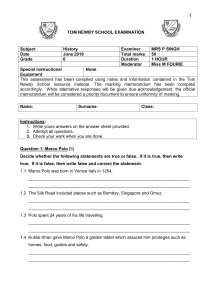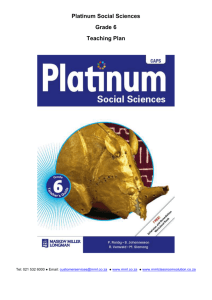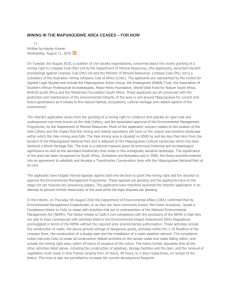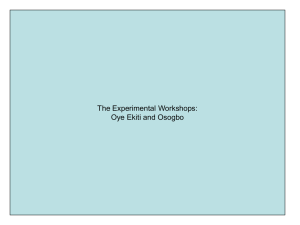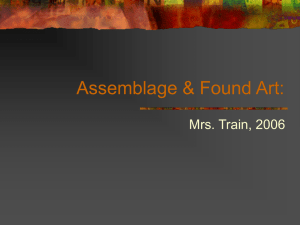Source: Leo Fouche, Mapungubwe: Ancient Bantu
advertisement
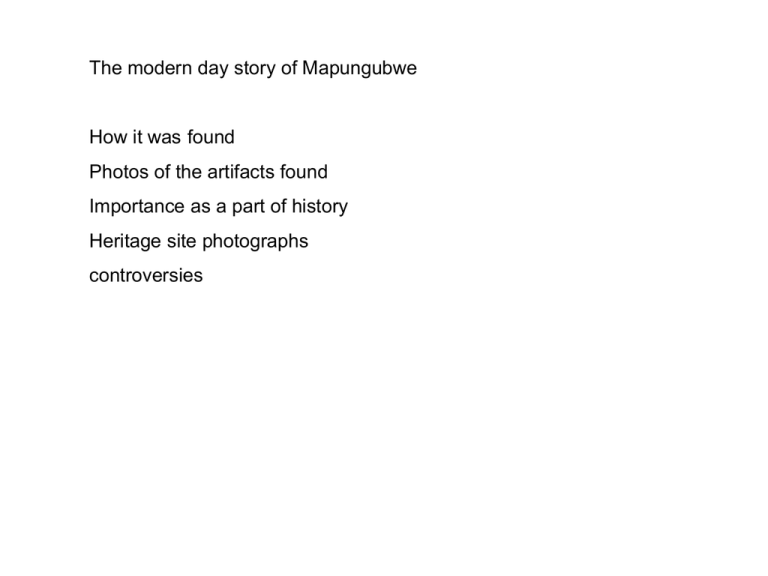
The modern day story of Mapungubwe How it was found Photos of the artifacts found Importance as a part of history Heritage site photographs controversies Mapungubwe Hill The main access to Mapungubwe Hill was via this narrow cleft Mapungubwe period stone walling on the Southern Terrace The story of Mapungubwe began long ago Masses of gold bangles were found round the arms and legs of the skeleton. Heavy coils of iron bangles round one leg had rusted to a solid mass, in which gold and glass spacing beads could be distinguished. The arms and neck had been surrounded by great numbers of gold wire bangles… . Where the skull had lain were found pieces of curiously shaped gold plate, the convolutions of which suggest they had adorned the wooden headrest of the corpse. A bowl of gold plate … was found, together with a gold plate bangle and a gold circlet and sheath or point, which probably ornamented a staff of office. Source: Leo Fouche, Mapungubwe: Ancient Bantu Civilization on the Limpopo. Cambridge, Cambridge University Press, 1937, p.2. Glass beads brought to Mapungubwe from India through trade on the eastern coast of Africa were melted down and made into larger beads using baked clay moulds. Fragments of Chinese celadon from the Sung Dynasty (960-1279 AD) were found at Mapungubwe. They are placed here next to a whole celadon wine kettle from a museum. Significance of Mapungubwe The Mapungubwe Cultural Landscape was the centre of the first kingdom in southern Africa established by the cultural ancestors of the present-day Shona and Venda. It includes more than 400 archaeological sites and the three successive capitals of Schroda, K2 and Mapungubwe, occupied between 900 and 1300 AD. This period laid the foundation for a new type of social organisation in Southern Africa. National heritage site • This means
